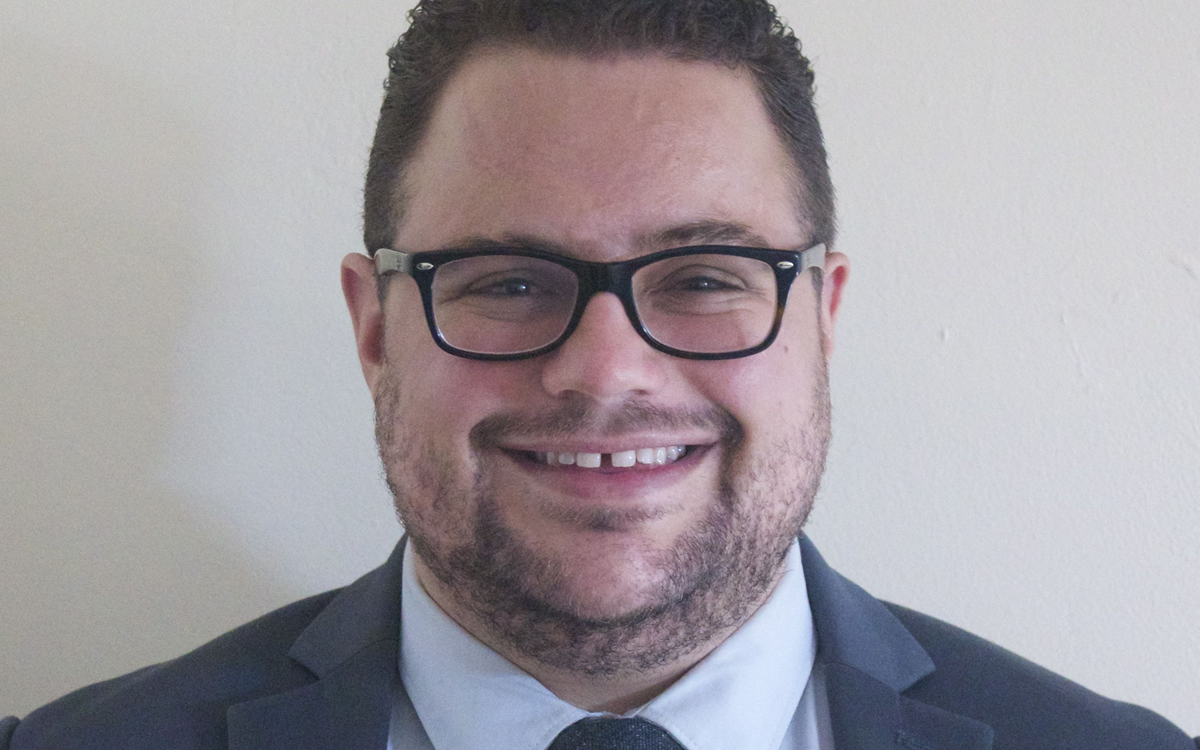National
Chairmen sending mixed signals on ‘Don’t Ask’
President Obama is being pressured to include a “Don’t Ask, Don’t Tell” repeal as part of his upcoming defense budget request to Congress, but the response from two key Democrats to such a proposal could hinder any change in the law.
Two lawmakers with considerable sway over defense matters — and whether a repeal will initially be part of the fiscal year 2011 defense budget — are House Armed Services Committee Chairman Ike Skelton (D-Mo.) and Senate Armed Services Committee Chairman Carl Levin (D-Mich.).
As leaders of the congressional committees that handle defense matters, Skelton and Levin get first crack at determining what’s included in the defense budget after the president sends his base bill to Congress in February. The lawmakers can make changes to the president’s request in their chairman’s marks to the legislation before the rest of Congress takes action.
So if Obama includes “Don’t Ask, Don’t Tell” repeal as part of his defense budget request, it’s possible for either Skelton or Levin to strike the language from the bill if they don’t want it there.
“You could make the argument that the chairman’s mark is the most vulnerable moment for what happens with repeal legislation this year,” said Aaron Belkin, director of the Palm Center, a think-tank on gays in the military at the University of California, Santa Barbara.
Some advocates, including Belkin, are questioning whether Levin and Skelton would retain Obama’s request to lift the ban on open service in the U.S. armed forces as part of their chairman’s marks for the defense budget.
Belkin was particularly skeptical about Levin’s willingness to let repeal go forward because of the senator’s history on “Don’t Ask, Don’t Tell.”
“Levin has been a huge problem on this issue,” Belkin said. “Who the hell knows where Levin is personally, but I would say that very few people in the United States have done more to obstruct the service of openly gay troops than Carl Levin.”
Belkin took issue with Levin’s abandoned plan to hold hearings last year on “Don’t Ask, Don’t Tell.” Those hearings never took place.
“I think it’s been now three times that he’s announced that the Senate would hold hearings on ‘Don’t Ask, Don’t Tell,’ Belkin said. “He just made the announcement again that they’re going to have hearings. But why were there no hearings last year despite the repeated announcements?”
A Senate Armed Services Committee spokesperson didn’t respond to the DC Agenda’s request for comment on whether Levin would allow repeal language to remain in his chairman’s mark for the defense budget.
Last week, Levin announced the Senate Armed Services Committee would hold hearings on gays in the military by the end of this month and that Chairman of the Joint Chiefs of Staff Adm. Michael Mullen and Defense Secretary Robert Gates would testify.
Matt Canter, spokesperson for Sen. Kirsten Gillibrand (D-N.Y.), said the hearing is scheduled for next week. Although not a member of the Senate Armed Services Committee, Gillibrand has been a strong advocate for repealing “Don’t Ask, Don’t Tell” since she took office last year.
Belkin also criticized Levin for not finding a Republican co-sponsor for a Senate repeal bill, which some say has prevented the introduction of the legislation in that chamber.
C. Dixon Osburn, former head of the Servicemembers Legal Defense Network, said Levin has gone on record several times as noting that he supports repeal of the ban, but acknowledged Levin is “somebody who’s very much a consensus builder within the Senate Armed Services Committee.”
“So if it’s not percolating up in the Senate Armed Services Committee, he’s going to be more reluctant even as he believes that the law should repealed, and right now you don’t have the bubbling up within the Senate Armed Services Committee,” Osburn said.
Although there’s concern among “Don’t Ask, Don’t Tell” opponents about Levin, Skelton has been the more vocal of the two lawmakers in supporting the existing ban on open service in the military. According to The Hill newspaper, Skelton said last week during an interview on C-SPAN’s “Newsmakers” that he is “personally not for changing the law.”
Still, both Belkin and Osburn said they aren’t as concerned about Skelton’s position on “Don’t Ask, Don’t Tell” as they are with Levin.
“It’s not helpful to have the chairman of House Armed Services oppose you, but I don’t think he’s the center of gravity in the House any more,” Belkin said. “All that said, it is sad … Chairman Skelton stands for firing gay Arabic linguists during a national security emergency. I’m not quite sure why that makes him feel safer.”
Osburn said the only moderation that he’s seen from Skelton on “Don’t Ask, Don’t Tell” is his willingness in the past couple years to have House hearings on the issue.
“And I think that the hope is if there’s a strong majority in the House supporting repeal, that he will accede,” Osburn said. “I’m less sanguine since he’s announced that he supports delay, but I think that Congressman [Patrick] Murphy is such a strong leader on this, and he’s developed such support around this in the House, that it is still a good possibility that this can move forward in the House.”
Lara Battles, spokesperson for the House Armed Services Committee, said she couldn’t say whether Skelton would include repeal language in his chairman’s mark for the defense budget, which she said would be public in May.
In 2008, the House Armed Services personnel subcommittee held the first hearing on “Don’t Ask, Don’t Tell” in 15 years. Aaron Hunter, spokesperson for Rep. Susan Davis (D-Calif.), chair of the subcommittee, said the panel intends to hold another hearing, although a date hasn’t been set.
If either Levin or Skelton removes repeal language from the defense legislation, lawmakers could reinsert the provision through an amendment.
The Advocate reported last week that gay Rep. Barney Frank (D-Mass.) said it doesn’t matter whether the Pentagon includes repeal in the budget request because lawmakers have the votes in the House to put the language in the legislation.
“I do not think it matters what the Pentagon says,” Frank was quoted as saying. “We will get the votes without it, I think.”
Some activists also were confident the House could muster enough support to pass an amendment that would lead to overturning the law. Still, whether there are 60 votes in the Senate to overcome a filibuster was in question.
Osburn said the Senate is a “much more difficult prospect” than the House because there isn’t a strong leader advocating for repeal in that chamber.
“Now that said, there’s a still a possibility,” he said. “There are still enough senators who support repeal that if the House moves on this, one or more senators could get together and ensure the amendment is attached to DOD authorization bill as well.”
If the House version of the bill has repeal language and the Senate version doesn’t, lawmakers would have to hash out whether repeal would be included in the final bill during conference committee — another potential point where the repeal strategy could fail.
Osburn said “it’s a possibility” that repeal language could survive conference, but that would depend on who congressional leaders appoint as conferees.
“The effort that the LGBT community would need to push for is to ensure that the conference committee includes people who are going to be supportive of this and will leave it in,” he said.
U.S. Supreme Court
Supreme Court to hear Md. religious freedom case on Tuesday
Advocacy groups to rally outside during Mahmoud v. Taylor oral arguments

Activists on Tuesday will hold a rally in front of the U.S. Supreme Court as the justices hear oral arguments in a case that will determine whether schools are violating parents’ religious freedom by not letting them opt their children out of learning about LGBTQ-specific topics.
Mahmoud v. Taylor is a case out of Montgomery County about parents who wish to opt their children out of LGBTQ-themed lessons in public schools for religious reasons.
Montgomery County Public Schools, after initially allowing parents to opt their children out, changed the policy in March 2023.
The plaintiffs — Tamer Mahmoud, Enas Barakat, and other parents — argue “the storybooks were chosen to disrupt ‘cisnormativity’ and ‘either/or thinking’ among students.”
“The board’s own principals objected that the curriculum was ‘not appropriate for the intended age group,’ presented gender ideology as ‘fact,’ ‘sham[ed]’ students with contrary opinions, and was ‘dismissive of religious beliefs,’” according to the petition on the Supreme Court’s website.
The petition goes further, saying the parents are “not challenging the curriculum, but arguing that compelling their elementary-age children to participate in instruction contrary to their parents’ religious convictions violated the Free Exercise Clause. Construing Wisconsin v. Yoder, the 4th Circuit found no free-exercise burden because no one was forced ‘to change their religious beliefs or conduct.’”
The Coalition for Inclusive Schools and Communities, an organization that aims to bring together “advocates, educators, families, and organizations committed to inclusive, affirming, fact and science-based education,” will participate in the “Rally for Inclusive Education” rally outside the Supreme Court alongside Live In Your Truth and the Montgomery County Pride Family.
“Inclusive education isn’t just a value — it’s a necessity,” said Phillip Alexander Downie, co-chair of the Coalition for Inclusive Schools and Communities and CEO of Montgomery County Pride Family. “The right of every child to learn in an environment where they see themselves reflected, affirmed, and respected is under attack. This rally is our moment to protect that right — and ensure future generations inherit classrooms rooted in truth, equity, equality, and justice.”
The Coalition for Inclusive Schools and Communities says the rally is a “nonpartisan community gathering rooted in education, advocacy, and solidarity.”
“The focus of this event is to uplift the importance of inclusive learning environments, celebrate the power of diversity in our schools, and amplify the voices of those most impacted by exclusionary practices and rhetoric,” it said.
The rally will feature speakers from across the country, including students, educators, civil rights leaders, and authors who will give their own testimonies as to why it is important to have inclusivity in primary education. Trans Maryland, the National Women’s Law Center, MoCoPride Center, and Authors Against Book Bans are among the LGBTQ groups sponsoring the event.
National
EXCLUSIVE: Rodrigo Heng-Lehtinen to step down from Advocates for Trans Equality
A4TE formed last year when two transgender rights groups merged

Advocates for Trans Equality Executive Director Rodrigo Heng-Lehtinen on Monday announced he will step down on April 30.
The Transgender Legal Defense and Education Fund and the National Center for Transgender Equality formed Advocates for Trans Equality last year when they merged. Heng-Lehtinen was previously NCTE’s executive director.
“Now that we’ve made it through the merger, and A4TE is established as a new, prominent institution fighting hard for trans equality, it’s time for me to take my next step,” said Heng-Lehtinen in a press release that Advocates for Trans Equality sent exclusively to the Washington Blade. “When Andy (Hong Marra) and I began envisioning the merger, I committed to seeing it through. I’m proud that now our vision has been realized. A4TE has not just launched, but is fully up and running, delivering results for trans people around the country. With A4TE gaining momentum, I’m now ready to move on to my next chapter.”
Heng-Lehtinen, whose mother is former Florida Congresswoman Ileana Ros-Lehtinen, in the press release stressed he “will be focusing on changing hearts and minds.”
“With my background in persuasion and messaging, it’s where I can make the biggest difference, and what I feel called to return to in this era of anti-trans backlash,” said Heng-Lehtinen. “I will still be fighting shoulder-to-shoulder with everyone (in) the trans movement, simply in a different capacity.”
Marra, who is Advocates for Trans Equality’s CEO, praised Heng-Lehtinen and said the organization’s work will continue.
“We thank Rodrigo for his years of dedicated leadership and service,” said Marra. “A4TE will continue to deliver on our promise to advocate for the lives of trans people who need us now more than ever. We remain undaunted by our endeavor to ensure trans people and our families are no less than free and equal and treated with dignity and respect.”
Louisiana Trans Advocates Executive Director Peyton Rose Michelle also praised Heng-Lehtinen.
“Rodrigo has been a steady hand and a bright light in this work,” she said. “He’s someone who shows up with integrity, kindness, and a deep commitment to meeting this political moment with courage. I’ve always felt deeply supported and heard by him, which is something I value deeply.”
“I fully support him as he steps into this new chapter, and I know his clarity of vision and heart-forward leadership will keep shifting this landscape back toward justice for trans people, and therefore, all people,” added Michelle.
U.S. Federal Courts
Federal judge blocks Trump passport executive order
State Department can no longer issue travel documents with ‘X’ gender markers

A federal judge on Friday ruled in favor of a group of transgender and nonbinary people who have filed a lawsuit against President Donald Trump’s executive order that bans the State Department from issuing passports with “X” gender markers.
The Associated Press notes U.S. District Judge Julia Kobick in Boston issued a preliminary injunction against the directive. The American Civil Liberties Union, which represents the plaintiffs, in a press release notes Kobick concluded Trump’s executive order “is likely unconstitutional and in violation of the law.”
“The preliminary injunction requires the State Department to allow six transgender and nonbinary people to obtain passports with sex designations consistent with their gender identity while the lawsuit proceeds,” notes the ACLU. “Though today’s court order applies only to six of the plaintiffs in the case, the plaintiffs plan to quickly file a motion asking the court to certify a class of people affected by the State Department policy and to extend the preliminary injunction to that entire class.”
Former Secretary of State Antony Blinken in June 2021 announced the State Department would begin to issue gender-neutral passports and documents for American citizens who were born overseas.
Dana Zzyym, an intersex U.S. Navy veteran who identifies as nonbinary, in 2015 filed a federal lawsuit against the State Department after it denied their application for a passport with an “X” gender marker. Zzyym in October 2021 received the first gender-neutral American passport.
The State Department policy took effect on April 11, 2022. Trump signed his executive order shortly after he took office in January.
Germany, Denmark, Finland, and the Netherlands are among the countries that have issued travel advisories for trans and nonbinary people who plan to visit the U.S.
“This ruling affirms the inherent dignity of our clients, acknowledging the immediate and profound negative impact that the Trump administration’s passport policy would have on their ability to travel for work, school, and family,” said ACLU of Massachusetts Legal Director Jessie Rossman after Kobick issued her ruling.
“By forcing people to carry documents that directly contradict their identities, the Trump administration is attacking the very foundations of our right to privacy and the freedom to be ourselves,” added Rossman. “We will continue to fight to rescind this unlawful policy for everyone so that no one is placed in this untenable and unsafe position.”
-

 State Department4 days ago
State Department4 days agoHIV/AIDS activists protest at State Department, demand full PEPFAR funding restoration
-

 Brazil4 days ago
Brazil4 days agoUS lists transgender Brazilian congresswoman’s gender as ‘male’ on visa
-

 District of Columbia4 days ago
District of Columbia4 days agoCapital Pride wins $900,000 D.C. grant to support WorldPride
-

 Mexico3 days ago
Mexico3 days agoGay couple claims Puerto Vallarta wedding venue discriminated against them












